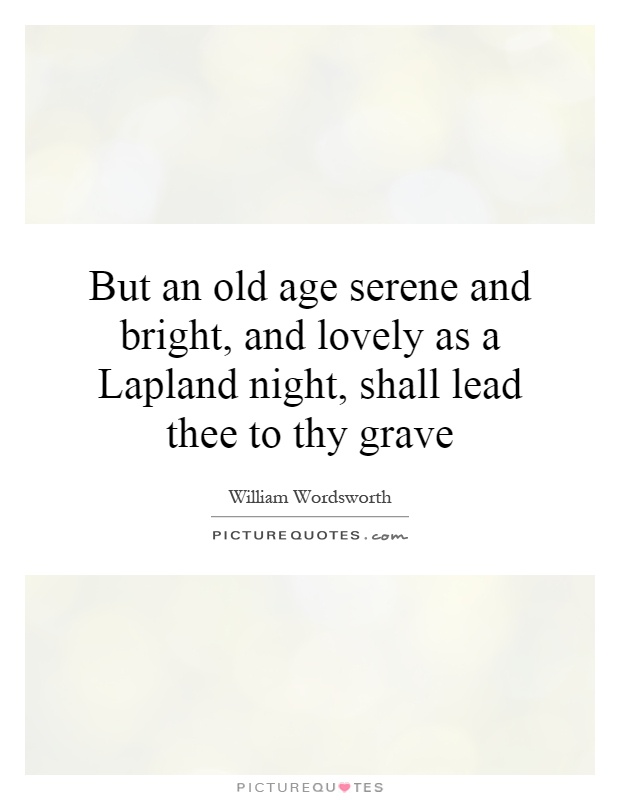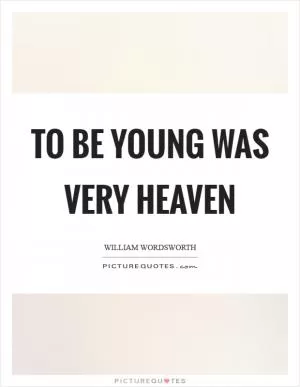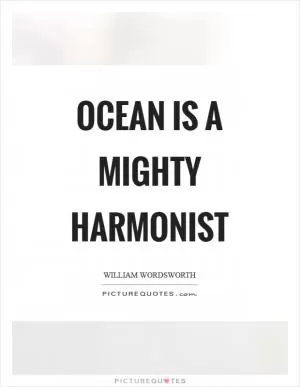But an old age serene and bright, and lovely as a Lapland night, shall lead thee to thy grave

But an old age serene and bright, and lovely as a Lapland night, shall lead thee to thy grave
William Wordsworth, one of the most celebrated poets of the Romantic era, often explored themes of nature, beauty, and the passage of time in his works. In his poem "Ode: Intimations of Immortality from Recollections of Early Childhood," Wordsworth reflects on the idea of aging and mortality, and the line "But an old age serene and bright, and lovely as a Lapland night, shall lead thee to thy grave" encapsulates his vision of a peaceful and graceful end to life.The image of old age as serene and bright, like a Lapland night, is a striking contrast to the common perception of aging as a time of decline and loss. Wordsworth suggests that with age comes a sense of peace and beauty, akin to the quiet majesty of a Lapland night. Lapland, a region in northern Europe known for its vast, unspoiled landscapes and long, dark winters, symbolizes a sense of tranquility and harmony with nature. By comparing old age to a Lapland night, Wordsworth emphasizes the idea that the later stages of life can be a time of reflection, wisdom, and contentment.
The phrase "shall lead thee to thy grave" acknowledges the inevitability of death, but also suggests that the journey towards the end of life can be a graceful and dignified one. Wordsworth's use of the word "lead" implies a sense of guidance and direction, as if old age itself is a gentle companion guiding us towards our final resting place. This image of a serene and lovely old age leading to the grave reflects Wordsworth's belief in the cyclical nature of life and death, and the idea that death is not an end, but a natural part of the eternal cycle of existence.
Overall, the line "But an old age serene and bright, and lovely as a Lapland night, shall lead thee to thy grave" captures Wordsworth's profound understanding of the beauty and complexity of life, and his belief in the transformative power of aging and mortality. Through his poetry, Wordsworth invites us to embrace the passage of time with grace and acceptance, and to find beauty and meaning in every stage of life, including the journey towards our final rest.












 Friendship Quotes
Friendship Quotes Love Quotes
Love Quotes Life Quotes
Life Quotes Funny Quotes
Funny Quotes Motivational Quotes
Motivational Quotes Inspirational Quotes
Inspirational Quotes